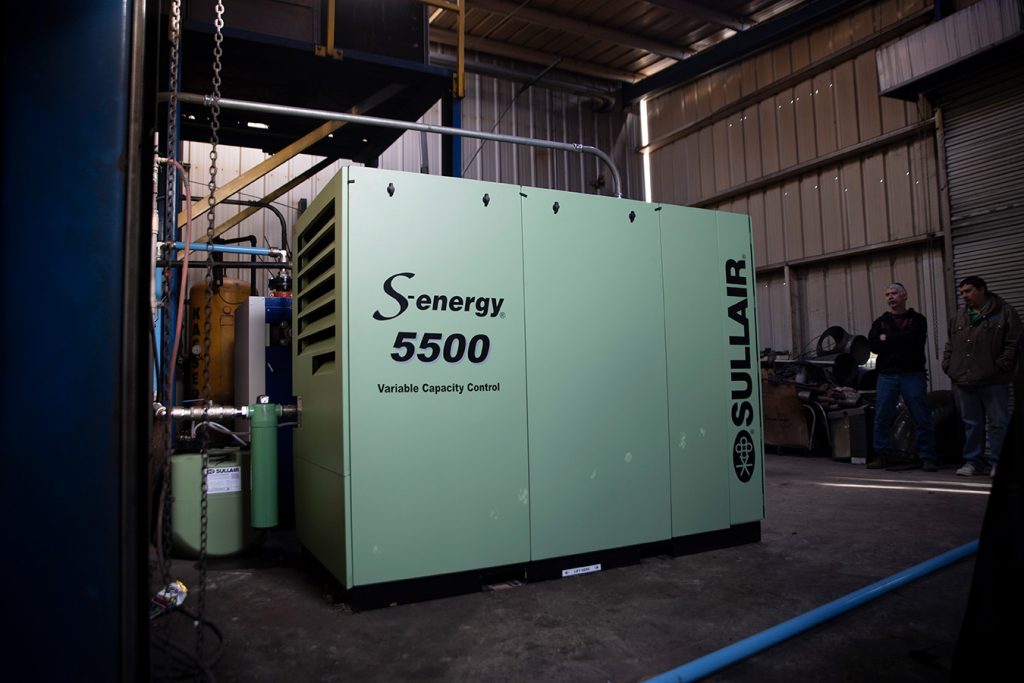Sullair.com | February 5, 2021 | by Spencer Hall
When it comes to rotary screw air compressors, it is important to follow the prescribed service and maintenance program. A maintenance program is one of the most critical components of system management since so many machines and functions within industrial facilities rely on compressed air. This helps ensure a smooth-running operation and helps prevent interruptions and unexpected downtime.
First and foremost, it is important to follow the maintenance plan and service intervals to maintain your Sullair warranty. This includes things such as routine oil sampling, motor greasing and fluid changes. Using genuine Sullair parts and fluids is a great start to maintaining your Sullair warranty.
Additional regular service items depend on the application in which your compressor is used. For instance, if your compressor is used in a clean application, like pharmaceuticals, it will require less maintenance than when used in a dirty or dusty environment, such as a sawmill.
There are also components of rotary screw air compressors that may not necessarily be a part of routine service intervals, but you should keep a close eye on and maintain.
Cleaning the Coolers
While there is not a defined service interval for cleaning the coolers, overlooking them can cause the compressor to overheat and become unreliable. Thus, clean the coolers as often as needed. As mentioned, a compressor in a pharmaceutical application will not require this as often as a compressor in a sawmill.
Couplings
Coupling elements should be inspected each quarter and replaced as needed. If you do not inspect the coupling regularly, you’ll likely run into big problems. Not only can the coupling fail and cause vibration in the compressor, but it can also damage the pump or motor, creating even more extensive damage.
Couplings are part of maintenance intervals. A pharmaceutical application and a sawmill will both likely replace this at the same interval since it is a wearable item. In this case, it doesn’t matter where the machine is located or the application in which it is used.
Water Quality
The cooling water that goes through your air compressor needs to be part of your building preventive maintenance program and checked at regular intervals. The cooling water needs to maintain to a certain standard—such as a certain pH and sediment value. The water used should not have certain minerals in it or it could affect your compressor’s cooling capability.
The water should be a closed loop system, such as a cooling tower. If the cooling tower system is not maintained, then the compressor’s cooling system can be the victim. We’ve often seen compressors overheat and become unreliable due to the customer not maintaining its water system or operation/building.
This is an issue that can transpire quickly. We’ve seen end users who send very cold water through the cooling system with chemical and contaminate concentrations high. Under these conditions, the water contacts the hot fluid tubes, sediments can drop out and accumulate inside the tubes. Minerals such as calcium can buildup, preventing adequate heat transfer. This condition can cause the compressor to overheat and become unreliable.
Minimum Pressure Check Valve
Typically, once per quarter you should disassemble the minimum pressure check valve (MPCV) and clean it. Once a year you should rebuild this component. If you don’t maintain this item, you will run into all sorts of reliability issues, such as the compressor not starting or unloading properly.
When it comes to air compressors, it is important to maintain the service intervals not only to protect your warranty but also to help prevent interruptions and unexpected downtime. In addition to the maintenance intervals, pay close attention to these components to help prevent – rather than react to – any problems with your rotary screw air compressor.
CLICK HERE TO CONTACT DIVERSIFIED AIR FOR MAINTENANCE AND SERVICE INQUIRIES

